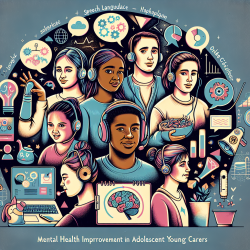Understanding Health Care Students' Attitudes on Alcohol Use During Pregnancy
The research article titled “No Alcohol Is Recommended, But . . .”: Health Care Students’ Attitudes About Alcohol Consumption During Pregnancy provides valuable insights into the attitudes and beliefs of health care students regarding alcohol consumption during pregnancy. This study, conducted by Coons et al. (2017), highlights the necessity for further education and training for health care students to effectively support the prevention of fetal alcohol spectrum disorder (FASD).
Key Findings and Implications for Practitioners
The study involved 21 health care students who participated in scenario-based vignettes to explore their attitudes about alcohol use during pregnancy. The findings revealed three primary themes:
- Attitudes Regarding Amount of Alcohol and Timing of Exposure: Many students recognized that no alcohol consumption during pregnancy is the safest recommendation. However, there was a notable variance in attitudes concerning the timing of exposure and the amount of alcohol consumed.
- Professional Obligation vs. Evidence: Students felt a professional obligation to inform patients that no alcohol is the safest recommendation, despite the lack of conclusive evidence on the effects of low-level alcohol consumption.
- Personal Choice: The decision to consume alcohol during pregnancy was often viewed as a personal choice, especially among midwifery students, who emphasized supporting the mother's autonomy.
Enhancing Practitioner Skills
For practitioners, these findings underscore the importance of clear and consistent communication with patients about the risks of alcohol consumption during pregnancy. Here are some strategies to enhance practitioner skills based on the study's outcomes:
- Provide Comprehensive Education: Practitioners should seek ongoing education about the risks associated with prenatal alcohol exposure and stay informed about the latest research findings.
- Engage in Open Dialogue: Encourage open discussions with patients about their concerns and provide evidence-based recommendations while respecting their autonomy.
- Promote Consistent Messaging: Ensure that the information provided to patients is consistent with public health guidelines and tailored to individual patient needs.
- Support Informed Decision-Making: Equip patients with the knowledge needed to make informed choices about alcohol consumption during pregnancy.
Encouraging Further Research
While the study provides valuable insights, it also highlights the need for further research into health care students' knowledge and training regarding FASD. Practitioners are encouraged to contribute to this area by engaging in research initiatives and sharing their experiences and findings.
To read the original research paper, please follow this link: “No Alcohol Is Recommended, But . . .”: Health Care Students’ Attitudes About Alcohol Consumption During Pregnancy.










